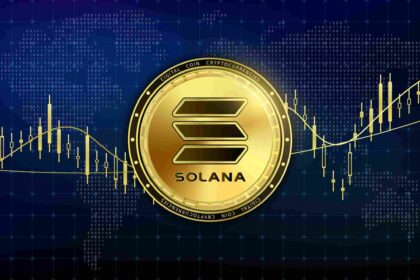Crypto’s Political Power Play: How US Elections Fueled Industry Growth and Magnate Fortunes
The recent November US elections have proven to be a monumental turning point for the cryptocurrency industry, particularly for its leading figures. Far from being mere spectators, crypto magnates who strategically invested millions in political campaigns are now reaping substantial financial rewards. As reported by CoinDesk, the electoral outcomes have directly contributed to a significant increase in the wealth and influence of major players within the crypto ecosystem.
Brian Armstrong, CEO of Coinbase, stands out as one of the most prominent beneficiaries. Following the elections, Coinbase’s market capitalization soared by an impressive $21 billion, directly impacting Armstrong’s personal wealth. His ownership in the company saw an increase of nearly $2 billion, elevating his total position value to a staggering $6.4 billion. This surge highlights the direct correlation between strategic political engagement and substantial financial gains within the crypto sector.
The Deepening Roots of Crypto Influence in US Politics
The significant financial contributions made by crypto leaders prior to the elections underscore their commitment to shaping a favorable regulatory landscape. Coinbase, for instance, publicly announced a $25 million donation to Fairshake, a super PAC dedicated to supporting crypto-friendly candidates. When combined with Armstrong’s personal contributions, the total investment reached $74 million. These figures are comparable to the substantial investments made by other industry giants such as Ripple and Andreessen Horowitz (a16z), signaling a concerted effort to influence political discourse and policy.
Armstrong’s strategic financial maneuvers extend beyond direct political donations. He publicly disclosed his stock sales on X (formerly Twitter), characterizing them as a diversification strategy. This approach allows him to engage in high-risk ventures while maintaining a significant stake in his core businesses. According to recent SEC filings, Armstrong retains a 10% ownership in Coinbase, holding 24 million shares in a trust, further solidifying his long-term commitment to the company’s success.
Brad Garlinghouse, CEO of Ripple, also experienced a remarkable surge in his net worth post-election. Ripple’s native token, XRP, witnessed a dramatic price increase from $0.50 to $2.32, representing a 54.7% rise within a single month, according to CoinMarketCap data. This impressive growth propelled XRP to become the third most valuable digital asset in the cryptocurrency market. Garlinghouse, a significant holder of XRP and owning over 6% of Ripple, saw his holdings appreciate threefold due to this price surge, which was partly catalyzed by the election results and subsequent market rally.
Strategic Philanthropy: How Crypto Donations Drive Industry Gains
The substantial political donations from crypto entities are not merely acts of philanthropy but rather strategic investments designed to foster an environment conducive to industry growth. Ripple’s contribution of $73 million to the election process, slightly less than a16z’s $70 million, exemplifies this trend. Notably, some of these funds have already been earmarked for the 2026 election cycle, indicating a sustained commitment to political engagement.
Andreessen Horowitz, a prominent venture capital firm founded by Mark Andreessen and Ben Horowitz, has also reaped significant rewards. Their extensive investments in various crypto companies have outperformed the capital committed to political campaigns, demonstrating the synergistic relationship between political influence and investment returns. The firm’s broad interest in blockchain ventures and digital currencies positions them to capitalize on the evolving regulatory landscape shaped by their political contributions.
The escalating net worth of crypto leaders serves as compelling evidence of the industry’s burgeoning political clout. These contributions are instrumental in shaping favorable policies and regulations that support the growth and mainstream adoption of cryptocurrencies. The increasing involvement of crypto companies and their executives in political campaigns signifies a strategic shift towards actively influencing the legal and economic frameworks governing the digital asset space.
This proactive strategy is clearly yielding substantial advantages. Figures like Garlinghouse and Armstrong, among many others, have witnessed unprecedented wealth accumulation following the recent elections. These are not isolated instances of personal gain but rather calculated efforts to firmly embed crypto within the broader economic system. Armstrong’s diversification strategy, for example, while involving the sale of some shares, ensures his continued significant stake in Coinbase, guaranteeing his ongoing prominence in the company’s future trajectory.
Similarly, Ripple’s market position has been significantly strengthened. The upward trend of XRP and its increased valuation have solidified its standing as one of the most popular digital currencies. Garlinghouse’s decision to maintain a substantial holding of XRP further underscores the strategic foresight exhibited by leading crypto executives.
The convergence of crypto and politics is an undeniable and growing phenomenon. The recent elections vividly illustrate how strategic financial engagement can translate into both wealth and considerable influence. Crypto companies and their representatives are now emerging as key influencers in shaping the legal framework surrounding digital assets.
Conclusion: A New Era for Crypto and Politics
With the cryptocurrency market value surging by over $1 trillion since the elections, the heightened political awareness within the industry is unmistakable. This period marks a critical juncture for the crypto sector, characterized by a coordinated approach that integrates financial power with political strategy. These developments signify the increasing normalization and integration of cryptocurrencies into both the financial and political domains. Such substantial wealth accumulation among crypto leaders heralds a new era where high stakes are met with equally high rewards, solidifying their position as influential forces in the global economy.
For continuous updates and in-depth insights into the dynamic world of cryptocurrency, The BIT Journal remains your trusted source. Follow us on Twitter and LinkedIn, and join our Telegram channel for real-time news and analysis.
Frequently Asked Questions (FAQs)
How did the November U.S. elections impact the wealth of crypto magnates?
The elections significantly boosted the market capitalization of crypto companies and enhanced the personal portfolios of leading figures in the crypto industry.
What gains did Coinbase CEO Brian Armstrong achieve post-election?
Brian Armstrong’s Coinbase holdings increased to $6.4 billion, reflecting a nearly $2 billion surge in value, in addition to his $129 million stock sales.
How did Ripple CEO Brad Garlinghouse benefit from the elections?
Brad Garlinghouse’s XRP holdings appreciated threefold, as the token’s price rose by 54.7% within 30 days, substantially increasing his net worth.
What role did political donations play in the crypto sector’s post-election gains?
Crypto companies and their executives made substantial financial contributions to political campaigns, strategically influencing policies and benefiting from favorable political outcomes.




























